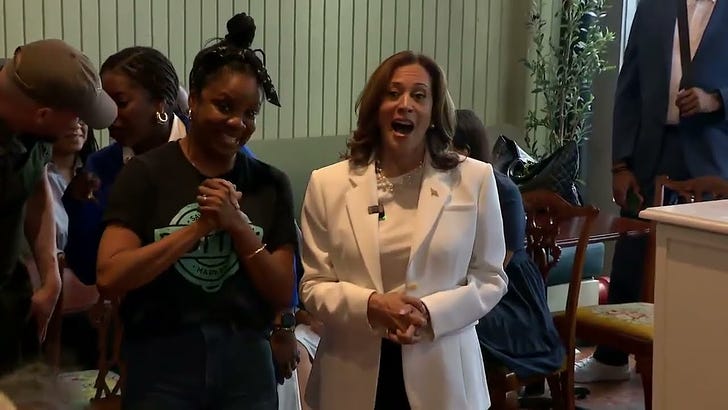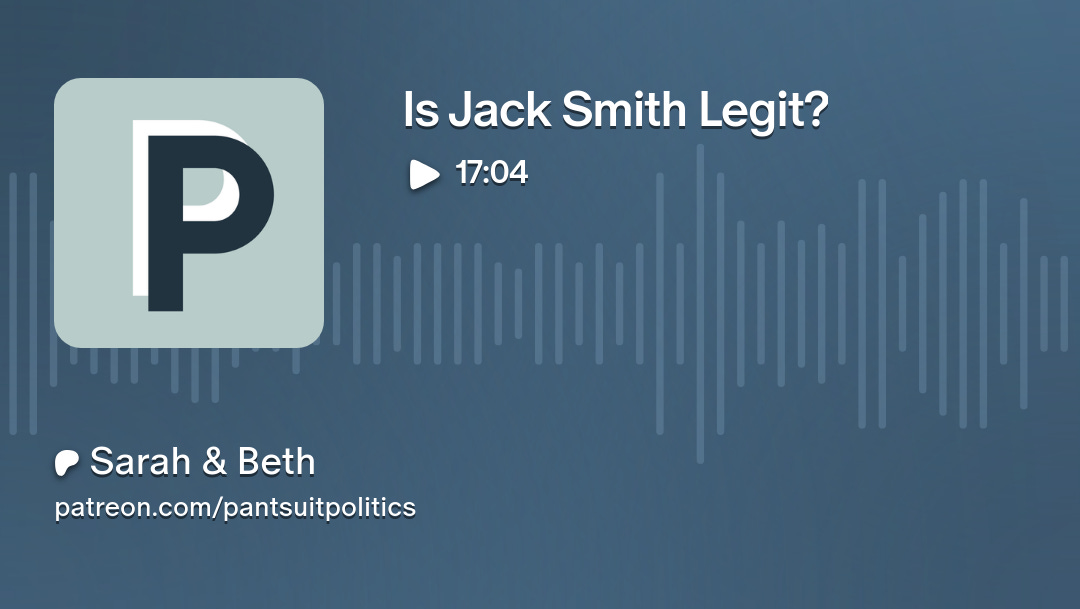I’ve been trying to write about Dana Bash’s primetime interview of Vice President Harris and Governor Tim Walz for two hours. I write paragraphs; I delete them; I stare at the screen; I stare out the window; I repeat the cycle. For all of the bizarre dynamics in the 2024 presidential race, one very personal bizarre dynamic keeps tripping me up: I like Kamala Harris, and I don’t quite know how to handle that.
When I say that I like her, I don’t mean that I love her, that I’d do anything for her, that I feel defensive of her, that I have sainted her in my mind and heart. I just like her.
I admire the way she handles herself. I’ve done my best to scrutinize her work as vice president, and, on the whole, I give that work high marks. I agree with her often, and when I disagree, I still understand where she’s coming from.
I could say those things about quite a few people in politics. The difference with Vice President Harris, and I hate admitting this, is that I like her in a more personal way. I think she’d be a good listener over chips and salsa. I think she’d be fun at my annual Christmas party. I think she’d be great to have on the church board. I think she’d be lovely to my daughters. I think that with time and dinners and card games, my husband Chad would come to trust her and seek out her advice.
I don’t often allow myself this kind of speculation about people I don’t know. There’s a healthy range for connecting with people who are really strangers to us. With political figures in particular, I try to err on the low end of that range.
But I can’t help it: I like Vice President Harris, and it gets in my way.
I’m trying to process the CNN interview analytically:
All of Dana Bash’s questions were easily anticipated, so Harris should have tighter answers for many of them.
Harris warmly rejected the premises of some of Bash’s questions. When Bash asked about Biden’s competence, Harris praised him. When Bash opened the Trump can of worms, Harris definitively closed it.
Harris has significantly improved in fielding questions but still occasionally gets tripped up.
I can bring, I hope, some objectivity to assessing her policies and performances.
My struggle gets real around the loudest, fairest critique of her: that she doesn’t really say much. This critique takes different forms. She’s evasive. She’s a flip-flopper. She lacks firm convictions. She’s deceptive. She’s trying to appeal to moderates. She’s trying to appease progressives. In the most neutral framing, she is hard to pin down on specifics.
I love specifics. This should be a real problem for me. With her, it isn’t, and the reason probably explains why I like her so much. I think she doesn’t say much because she’s cautious.
Here we head into the choppiest waters. I’m projecting my life onto a person I don’t know. Everything in my experience tells me that nothing good comes of this, but I’m doing it anyway. I can’t seem to help it.
When I started practicing law at the age of 24, as a soft-spoken, curly-haired woman who loves poetry and grew up on a farm, I learned to be extremely cautious. The lessons that inspired that caution came quickly, harshly, and sometimes traumatically. I remember observing the dynamics happening in my summer associate class and telling a colleague that my strategy was to be like a houseplant. I would stay in the background, pleasantly and quietly. Perhaps you’d miss me if I weren’t in the room, but it would take a minute to notice I had left.
When you practice this kind of restraint every day, it sinks into your bones. You know not to overpromise and underdeliver, but you learn not to promise at all unless you can control every single aspect of delivery. You try to be precise and hope that people will give you the benefit of the doubt. You learn that they absolutely will not, so you say less and couch every word. “It depends” replaces “yes” and “no” because “it depends” is almost always the most truthful answer.
If these are the lessons I learned in 2006 as a white woman in private practice, I can imagine the lessons Kamala Harris learned in 1990 as a Black and Indian woman in a prosecutor’s office.
This is the unshakable conviction that I hold about Vice President Harris: she is cautious, and her caution is hard-earned. It is necessary. It is sometimes limiting. It’s a caution that Gov. Tim Walz hasn’t learned yet. You can see why, and you can see it coming for him.
I like her because she’s managed to compartmentalize her caution. You see the caution in her unwillingness to slap policy statements on her nascent website. It emerges in interviews because she’s not in control of the agenda. She’s calibrating for all of the people who will watch and make meaning of her answers because she’s thinking about her words and her tone and her body language, because she’s aware of both her most earnest supporters and her most strident critics.
In other settings, it vanishes. She laughs with her entire body. She dances. She relishes the pleasure of food and music and kids. The people who know her say she’s empathetic and full-hearted, that she calls when there’s something to celebrate or to grieve, and that she is present with them.
And so I like her because she survived. She made it out of the trenches. I only sort of know into the trenches I can’t imagine, and her soul seems well. When she gives a non-answer to a pointed question, I’m still rooting for her. I understand why she doesn’t trust the world with her thoughts. I celebrate that she still, somehow, seems to genuinely like that untrustworthy world.
The one thing we want you to know this week…
We’ve been reading Democracy in America with our Premium Community throughout this election year. We released our 4th Conversation about the book today.
ICYMI: Here is our Kick-Off conversation from earlier this year.
The one thing we made this week we can’t stop thinking about…
There was a LOT of news in July (you may remember), but one piece of news we haven’t had a chance to discuss in depth was Judge Aileen Cannon’s dismissal of Special Council Jack Smith’s Classified Documents Case against Donald Trump. This week, the Special Counsel filed a brief asking an appeals court to intervene. Beth discusses the Florida case and took seriously: Is Jack Smith legit?
Copyright (C) 2024 Pantsuit Politics. All rights reserved.






I love this piece from you, Beth. I can't thank you enough for always bringing such a thoughtful, reflective, gracious, and patient perspective to politics and life. It's really refreshing. And your critiques and commendations alike carry so much more weight when you're willing to critique things/people you like and commend things/people you don't necessary appreciate. There is so much nuance in the world, and you effectively embrace that.
I always appreciate your thoughtful balanced perspective. We really don't need to be blind cheer leaders for this ticket. That would make us resemble the other side's supporters. I want us to be more thoughtful and discerning because she may (will) direct our country.
I agree her answers could have been tighter and hope that will come. And also can we ask about the balance or comparison of her thoughtful and consistent answers vs. the other ticket/candidates' policy clarifications. I hear from media she needs to sit down for an interview and provide some clarity beyond her stump speech. Where are the calls for that from the other ticket? Let's not give them a pass because they are not capable. Let's expect the same from them. And if it is Project 2025, let's ask them to commit to their positions.